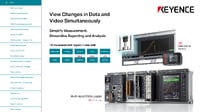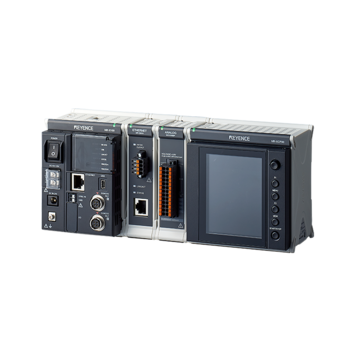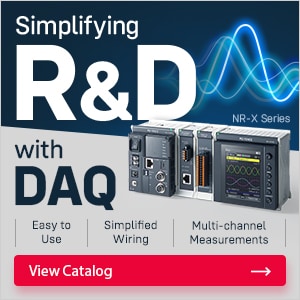Data Acquisition (DAQ)
Temperature Measurement for the Electrical Equipment Industry
-
Tags:
- Temperature , Electrical Equipment , Electronic Device
The food manufacturing industry, for example, relies heavily on electrical equipment because of large amounts of water for various production stages. This water is most commonly supplied and circulated via pumps driven by electric motors, and motors heat up during operation. However, knowing the difference between the operational temperature of the motor and the temperature increase caused by a faulty bearing can make a difference between preventative maintenance and unplanned downtime.
The significance of these measurements, along with the advantages of implementing a reliable temperature monitoring system such as an electrical test logger, is crucial for achieving success in this field.
We’re here to provide you with more details.
Reach out today!

Measuring Motor Surface Temperature in Electrical Equipment Manufacturing
Measuring the surface temperature of electric motors during operation is significant, as it helps detect thermal imbalances and unusual temperature patterns that can indicate a potential malfunction. Exposure to excessive heat during the manufacturing stage or due to heat generated by a malfunction can reduce efficiency and pose a safety hazard. It often leads to equipment failure, which can incur heavy financial losses.
Detecting these unusual thermal patterns can be easily done with KEYENCE’s FT Series sensors and NR-X Series data loggers. Electric motors can get extremely hot during malfunction; fortunately, the FT Series sensors don’t need to physically contact the target object. The built-in laser pointer allows for easier measurement, which is then transmitted to a processing unit and saved onto a data logger.
The NR-X data logger, the smallest and lightest device in its class, is perfect for storing such data, as well as data taken during predictive maintenance, further driving down the costs associated with downtime and repair. By keeping the motor in its ideal temperature range (between -20 °C and 40°C), you can significantly enhance its performance and longevity.
Apply the NR-X Series data logger for other on-the-go measurements as well, as it can be used with eight types of measurement units and perform multi-channel measurements using up to 576 channels.
Temperature Measurement Data Loggers for the Electrical Equipment Industry
Temperature is usually measured using thermal sensors or thermal cameras, but the measurement process still requires processing units to process the input data, as well as devices to store said data for subsequent analysis. And that’s where electrical test loggers come in.
Electrical test loggers are capable of recording temperature over time in various settings and parts of equipment, making them crucial for gaining a comprehensive overview of the temperature and its fluctuation over time, which is quite useful for analysis and manufacturing process optimization.
Discover more about this product.
Click here to book your demo.

Benefits of Temperature Measurement in the Electrical Equipment Manufacturing Industry
Temperature measurement in the electrical equipment industry provides numerous benefits that help optimize the electrical equipment manufacturing process and increase product quality. Temperature thermometry technologies, such as thermal imaging and infrared thermography, work on the principle of blackbody radiation, which allows technicians to see temperature. This visualization of temperature helps identify areas of concern and alleviate the thermal issues that led to uneven distribution.
Regular temperature monitoring via electrical test loggers helps identify hotspots and potential overheating issues that can, as discussed above, lead to complete equipment failure. Temperature measurement is also used in quality control; consistent temperature measurement ensures the manufactured component meets desired specifications.
Integrating Temperature Measurement into Electrical Equipment Manufacturing Processes
Accurate temperature measurement is of utmost importance in the electrical equipment industry. Integrating temperature measurement into the electrical equipment manufacturing process is a viable way to ensure the quality and efficiency of the end product. It’s also used for predictive maintenance, real-time thermal monitoring, and numerous other applications.
Ready to start incorporating temperature measurement into your electrical equipment manufacturing process? Contact KEYENCE for a wide range of high-quality and reliable multi-input data loggers designed specifically for the electrical equipment industry. Our expert team can help you find the perfect solution for your specific needs.
Contact us to learn more about how our advanced technology can help take your business to the next level.
Contact Us



